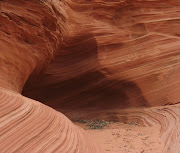

 trying to avoid bears. About 400 of their peers and the remaining mining company's security detail are firmly in the nyet! camp, refusing to be the next fishy replacements. Kamchatka is an extreme mountainous woodscape filled with a very hungry bear population more than 10,000 strong. In the middle of the area is a rich store of platinum being mined, making some oligarch richer at Koryakgeologia and those dispatched to explore and mine, more endangered. As of June 2008, a troy ounce of platinum sold for $2032 US. Instinct leads bears to go for the salmon run. Bad economic times lead human poachers to siphon off about 100 tons of salmon before bears can eat. Bears are trying to prepare and gain weight for winter. Plentiful in the bears environment are humans. Why does it aways start and end with human behavior? (Bear photo: Alexander Nemenov/AFP)
trying to avoid bears. About 400 of their peers and the remaining mining company's security detail are firmly in the nyet! camp, refusing to be the next fishy replacements. Kamchatka is an extreme mountainous woodscape filled with a very hungry bear population more than 10,000 strong. In the middle of the area is a rich store of platinum being mined, making some oligarch richer at Koryakgeologia and those dispatched to explore and mine, more endangered. As of June 2008, a troy ounce of platinum sold for $2032 US. Instinct leads bears to go for the salmon run. Bad economic times lead human poachers to siphon off about 100 tons of salmon before bears can eat. Bears are trying to prepare and gain weight for winter. Plentiful in the bears environment are humans. Why does it aways start and end with human behavior? (Bear photo: Alexander Nemenov/AFP)Kamchatka, 7,500 miles and nine time zones east of Moscow on Russia's Pacific coast, is one of the world's last truly great natural wildernesses. The remote volcanic peninsula is home to the rare Steller's seaeagle, as well as puffins and brown bears, who roam its geysers and snow-covered calderas - collapsed volcanoes.
"It's always the bear's fault," Laura Williams, the director of WWF's Kamchatka office told the Guardian yesterday. Speaking from Moscow, she said she was seeking further details of the standoff amid reports that a jeep had been sent to the region to finish the bears off.
About 10 bears have also been seen near the village of Khalino, sniffing fish remains and other garbage, agencies reported yesterday.Bears are usually Omega 3 omnivores, focusing on roots, sprouts, loving fish, insects and the occasional smaller delectable mammal. Capa
 ble of speed and sud
ble of speed and sud den fierce attacks bely their size when they weigh between 220 to 1500 pounds each and grow to the girth of the mighty American grizzlies. For the enormous Russian bears to gain weight to winterize, they need a steady diet of salmon, which has been corrupted by over development, human intervention like mining in their ecosystems, poachers and pollution. Many times the human solution, like in this case, involves killing off the bears with a 12 gauge shotgun from the safety of a helicopter. Interesting as the Volcanoes of Kamchatka, including Avachinsky, are one of the rare UNESCO World Heritage Sites where protection of the regional ecosystems are to be protected at all costs to preserve the honor of the designation they procured in 1996. The size of the area is almost twice that of Great Britain.
den fierce attacks bely their size when they weigh between 220 to 1500 pounds each and grow to the girth of the mighty American grizzlies. For the enormous Russian bears to gain weight to winterize, they need a steady diet of salmon, which has been corrupted by over development, human intervention like mining in their ecosystems, poachers and pollution. Many times the human solution, like in this case, involves killing off the bears with a 12 gauge shotgun from the safety of a helicopter. Interesting as the Volcanoes of Kamchatka, including Avachinsky, are one of the rare UNESCO World Heritage Sites where protection of the regional ecosystems are to be protected at all costs to preserve the honor of the designation they procured in 1996. The size of the area is almost twice that of Great Britain.Seems that a more thoughtful and preventative crackdown on poachers (worldwide) would be as prudent as keeping bears, the true residents of the rare regional habitat, from harming innocent humans.

Kamchatka is an unspoiled area with villages that were economically sustained by the fur trade in past eras. It has a panorama of geological resources and natural riches contained in the wonderful travelogue and detailed book, Kamchatka: A Journal & Guide to Russia's Land of Ice and Fire from author and explore Diana Gleadhill. Kinda cool for a former librarian. Buy a great book!










No comments:
Post a Comment